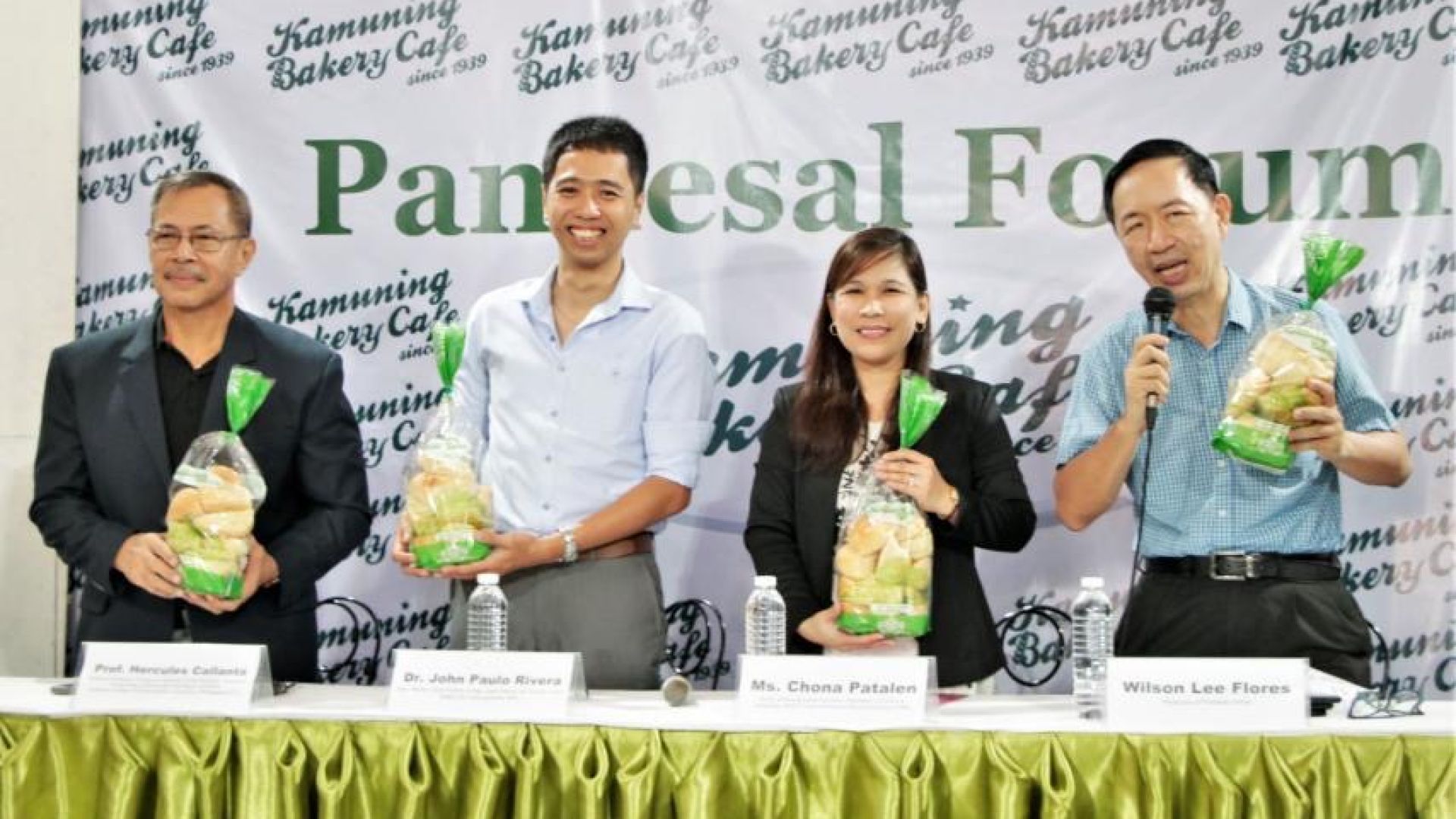A media forum held in the 84-year-old Kamuning Bakery in Quezon City discussed the proposal to increase the excise tax on sweetened beverages. Called the “Pandesal Forum,” the event welcomed health and economic experts to dissect the issue, citing recent available data on diabetes and obesity rates in the Philippines as sources. The forum sought to understand why diabetes and obesity rates in the country continue to rise despite efforts to reduce consumption of sweetened beverages through the excise tax.
The panel of experts invited to the forum included Chona Patalen, Senior Science Research Specialist from the Food and Nutrition Research Institute (FNRI) of the Department of Science and Technology (DOST). According to data from the FNRI, the per capita consumption of sweetened beverages has decreased significantly from 2015 to 2019. This decline was most evident among urban households. The Sweetened Beverage Tax was implemented in 2018 and imposed a P6.00 tax per liter on beverages which contained added pure sugar or non-caloric sweeteners like aspartame, or a combination of both. A tax of P12.00 per liter was imposed on beverages which contained High Fructose Corn Syrup or HFCS.
Obesity and Diabetes Rates Continue to Rise
In addition, consumption of sweetened beverages has decreased across all age groups in the Philippines, with adolescents and adults showing the sharpest decline. In contrast, Ms. Patalen shared obesity rates among Filipinos have only increased from 2015 to 2018, and even up to 2021. Among those aged 20 and above in the country, 38.6% are overweight and obese. This data translates to 17.8 million Filipinos who are overweight, and 5.6 million who are obese.
The data for Diabetes rates in the Philippines shows the same story. From 2013 to 2019, the number of Filipinos with borderline diabetes has more than doubled, translating to about 17.6 million people. In 2018 when the Sweetened Beverage tax was proposed, the reasons cited for the tax included helping curb obesity and diabetes rates. As the data shows, the number of Filipinos with obesity and diabetes continues to rise, despite the imposition of the excise tax on sweetened beverages. The FNRI is currently conducting the 2023 National Nutrition Survey, which is held every 5 years, which will reflect more updated obesity and diabetes rates, among other health measures.
An Increase in Excise Tax will Impact Middle- and Lower-Income Classes
Another member of the media forum panel was Dr. John Paulo Rivera, Executive Director of the Asian Institute of Management (AIM) Andrew Tan Tourism Center. Dr. Rivera is also the Chief Economist of Oikonomia Advisory & Research, Inc. In his discussion he noted that it is important to discuss the proposal to increase excise taxes on sweetened beverages because of the impact it may have on inflation, particularly on food. “As of the moment, inflation rates continue to be high, but we see this declining by the end of 2023 up to 2024,” explains Dr. Rivera. “However, if the excise tax on sweetened beverages is pursued, it will have an impact on consumption among middle and lower classes of consumers. This is because of the role that sweetened beverages play in their daily lives. If additional taxes are imposed on sweetened beverages, the prices of these will increase and will make purchasing them harder for consumers to purchase. While we understand that the goal of the excise tax is to limit consumption of sweetened beverages, we should also ask the question if these consumers have alternatives to these sweetened beverages.”
Dr. Rivera goes on to explain that while upper income classes may find alternatives easily, those in the lower brackets may not be able to do so, and as such the excise tax will impact their daily lives. If a tax is imposed, prices will similarly increase and consumers will bear the brunt of the impact. He adds that perhaps the government can find other ways to increase revenues other than an excise tax. In addition, he proposes that if the government would like to limit consumption of sweetened beverages, projects to help improve physical activity like public open spaces to counter diseases can be given focus.
Exercise is Medicine: Physical Activity and a Balanced Diet against Obesity and Diabetes
“We promote exercise because it serves as a hub to change lifestyles,” shares 3rd panel member Prof. Hercules Callanta, National Coordinator for “Exercise is Medicine” of the Philippine Association for the Study of Overweight and Obesity (PASOO). Prof Callanta is also a faculty member of the College of Human Kinetics of the University of Philippines Diliman. He relates that when people start doing exercise, they start to notice other aspects of their health, like the need to diet and even to sleep better. While it is common knowledge that having a balanced diet and being physically active are the keys to avoiding illnesses, Filipinos do not always practice both.
He clarifies however that while workouts are great for keeping fit, everyone should just start moving every day to be healthy. “We should all just start moving, start looking at our plates, adapting the “mind over plate,” he adds. He also supports the idea of walking more or even biking, taking the stairs, and avoiding using transportation if possible.
Professor Callanta adds that to help curb obesity and diabetes, there is a need to make nutritious food more affordable. “What we want to see is for healthy food to be more affordable especially for the poorer portions of the grand population,” he explains. He also adds that improving physical activity rates among Filipinos should also be a priority of the government by promoting more walkable places in communities.
The forum ended with the conclusion that, as the data shows, to help reduce obesity and diabetes rates the solution lies not in taxation but in the need for proper diet and exercise.





